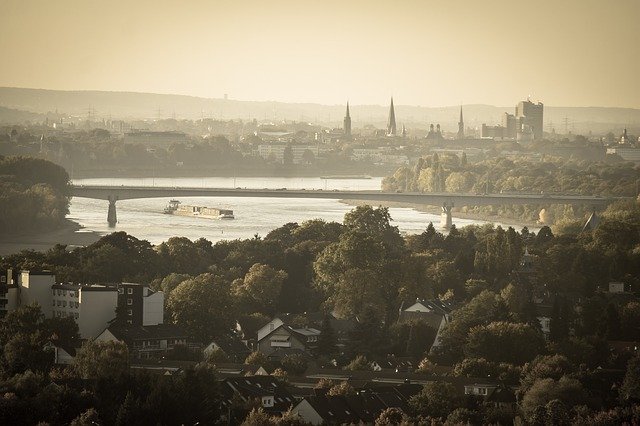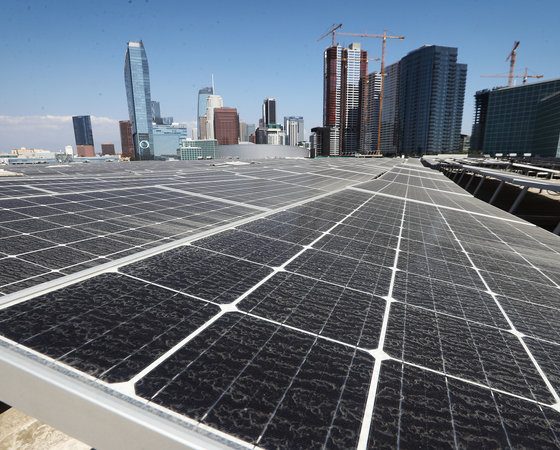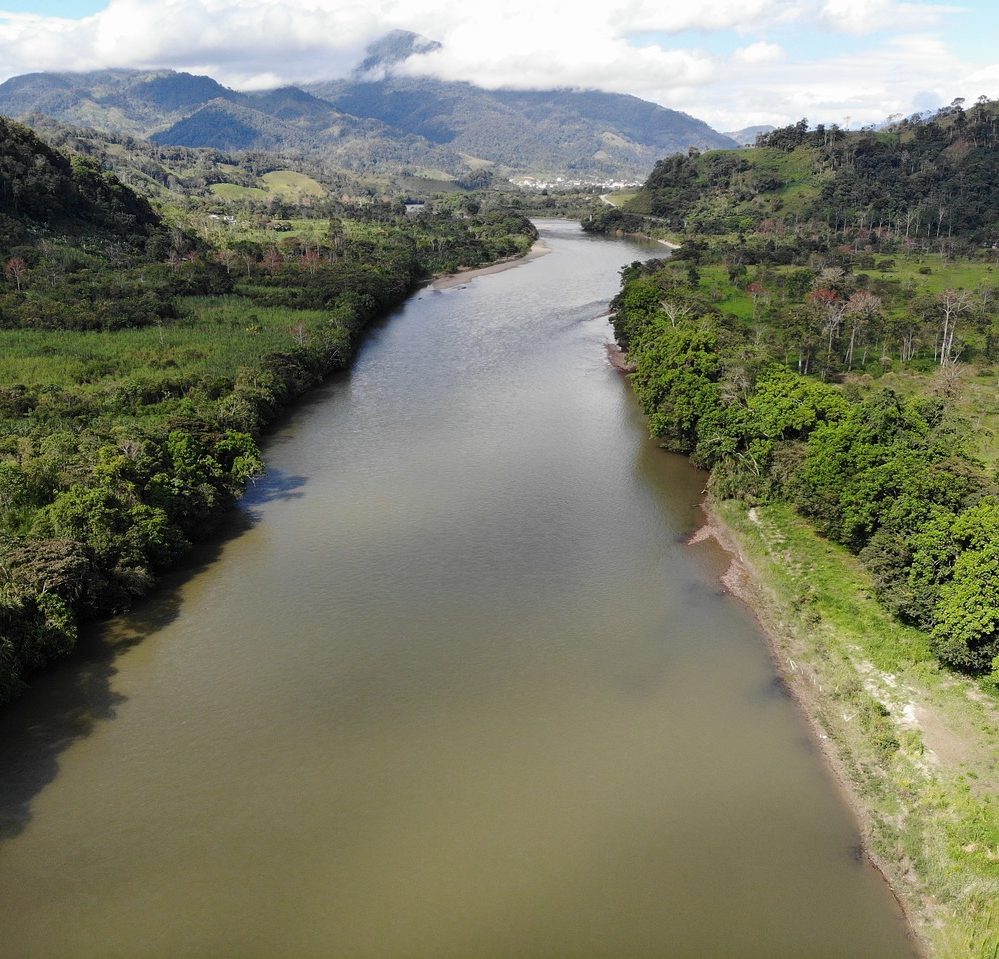Ghana is setting the pace on the African continent in sustainable development. Its capital city of Accra demonstrates leadership in the region – it was among the first African cities to commit to the Global Covenant of Mayors for Climate & Energy (GCoM) and engages in the BreatheLife campaign. Now, as the world faces its biggest health crisis of our generation, Accra continues to lead by example.
With all the suffering and hardship the COVID-19 global pandemic has brought, temporary lockdowns in cities across the world have had one major positive impact: showing how reduced air pollution enables walking and cycling without fear of breathing harmful gases, with reduced noise levels, and safer spaces enabling healthier lifestyles. Though temporary, the reduced level of air pollution, due to fewer greenhouse gases (GHGs) and Short-Lived Climate Pollutants (SLCPs) emitted worldwide, has shown it is possible to have cleaner, healthier air to breathe in urban areas. Making these gains permanent – to reduce the human impact on climate change and improve health – requires deliberate policy interventions.
Here, Accra has a head start. The Urban Health and SLCP Reduction Project, implemented in Accra with support from the Climate and Clean Air Coalition (CCAC) started in December 2016. It aimed to catalyze widespread action to implement SLCP reduction strategies, by mobilizing the health sector, and work closely with the local government across several departments. Health professionals, with appropriate information, knowledge and tools, can leverage their influential position and demonstrate the full range of health benefits possible at the city level. Local decision-makers and municipal staff in turn can plan and implement policies that support accelerated air quality improvement. The powerful combination of these two groups working together can lead to high impact actions.
“Cities are becoming more important in the geopolitical space. In our part of the world, air pollution is not prioritized as a health concern — even in the way we cook,” said the Mayor of Accra, Mohammed Adjei Sowah. “But the statistics are so staggering that we have to wake people up to take action. We have to talk about it loudly so that it becomes part of our discourse in the urban political space,” he said.
In this spirit, the World Health Organisation (WHO), United Nations Human Settlements Programme (UN-Habitat), and ICLEI – Local Governments for Sustainability (ICLEI), have been working closely with the Accra Metropolitan Assembly (AMA) in collaboration with Ghana’s Ministry of Health, Ghana Health Service, the Environmental Protection Agency and the Ministry of Transport to mobilize the health and other sectors. The cooperation promoted air pollution reduction policies and strategies through a variety of capacity building, outreach and advocacy actions, supported by strong health and economic evidence.
Through this project, Accra has been a pilot for the Urban Health Initiative (UHI) model process. This is an iterative process for integrating health into policy-making, with clean air and healthy citizens as its outcome. The UHI model process involves:
- Mapping the current situation, stakeholders, policies and decision-making processes;
- Adapting and applying health and economic tools in the local context;
- Developing and testing policy scenarios;
- Building capacity to engage policy-makers effectively;
- Communication and outreach to sustain and mobilize support; and
- Monitoring results and refining policy.
Inspired by this innovative work in Accra, other municipalities in Ghana, and cities around the continent – including Lome (Togo); Lagos (Nigeria;) Dakar (Senegal); and Addis Ababa (Ethiopia) – have sent representatives to Accra for dynamic working sessions. Intense discussions focused on topics such as the health and economic impacts of sectoral interventions, vertical integration of air pollution policies across different levels of government, financing options, and how to build on the work developed in Accra under the Urban Health and SLCP Reduction Project.
“There are solutions available now that yield potential multiple benefits for human health,” said WHO Ghana country representative, Dr. Owen Kaluwa during the launch of BreatheLife Accra in 2018. This was part of outreach and communications to citizens, as part of the UHI model process. “Ensuring that these are given due consideration involves giving the health sector the tools and capacity to quantify all co-benefits in ways that are meaningful to policy and personal decision-making processes,” elaborated Dr. Kaluwa.
This process has emphasized the need for good data. Accra has set up an innovative data center to assess various health determinants and disaggregate national data at the municipal level. “Most integrated air pollution and climate data is developed at a national scale, which is important to facilitate good national decision-making, but similar data is also needed to help cities take faster and more effective action,” stressed Mayor Sowah.
“Health data is an important driving factor in policy,” notes Emmanuel Appoh, Head of Environmental Quality at the Ghana Environmental Protection Agency, a lead partner along with Ghana Health Services. “Over the last two decades, Ghana has made a number of successful interventions driven by environmental and human health-based research,” he adds, citing the phasing-out of lead as a key example.
WHO has adapted a set of tools to allow urban planners and policy-makers to estimate potential economic, health and environmental impacts from particular sectors, track health indicators, and incorporate health considerations in the decision-making process.
Leading stakeholder engagement, ICLEI supported the local governments in Accra, offering a series of capacity building events, and documenting proven sector policies (“solutions” recommended for tailor-made implementation) focusing on household energy, waste and transport. ICLEI’s Solutions Gateway includes a Solutions Package on Integrated Air Quality and Climate Action with Health Impacts – leveraging synergies with the European Union funded project for accelerating climate action through the promotion of Urban Low Emission Development Strategies (Urban-LEDS II). However, local action alone cannot achieve the desired impacts. ICLEI has also been exploring approaches to support Accra in addressing key national government ministries and sector agencies. By creating effective multilevel governance processes, improving institutional frameworks, and identifying financing options for interventions necessary to reduce SLCP emissions at sub-national level, the scene is set to scale up air quality policies and action. Training provided by ICLEI experts also addressed tracking and reporting air quality and climate action on the CDP-ICLEI Unified Reporting System. Here relevant commitments made by subnational are captured, monitoring progress through reported GHG inventories as well as Climate Risk & Vulnerability Assessments, action plans, and investment needs.
“Tackling air pollution and climate change is key to future quality of life for all, with improved health a direct benefit of reducing the release of short-lived pollutants and other greenhouse gas emissions. Here the role and necessary leadership of every level of government is key” says Maryke van Staden, Director of ICLEI’s Bonn Center for Local Climate Action and Reporting (carbonn Climate Center). “Local governments have unique opportunities and responsibilities to plan, act and report in this regard, also being accountable to their local citizens”, she added.
On this International Day of Clean Air for blue skies, we reflect on Accra’s story and its endeavor to protect the health of its citizenry – an ongoing process with an enduring commitment. The lessons learned in the UHI model process and available resources across many sectors can inform your journey too. We call upon everyone from government to corporation, from civil society to every individual, take life into your own hands. Reduce air pollution and transform your lifestyle, together!
To learn more about the UHI model process, please visit: who.int/urbanhealthinitiative
For local governments, ICLEI’s Solutions Gateway includes recommended actions across a diversity of sectors.
This article was provided by the Urban Health Initiative.





